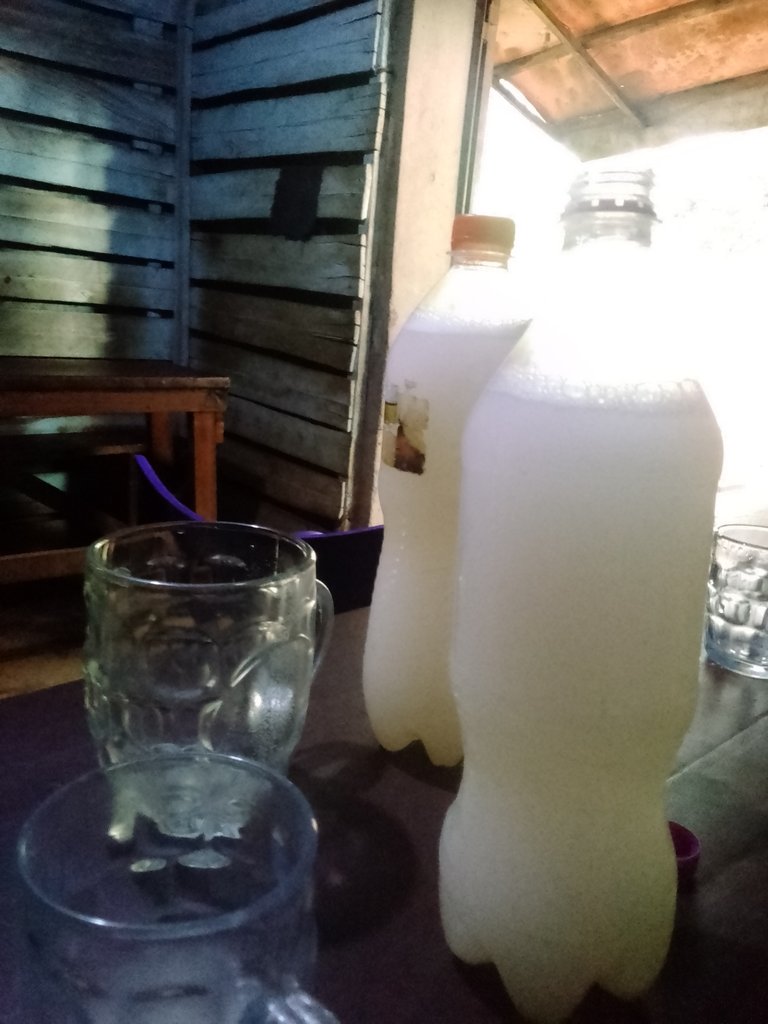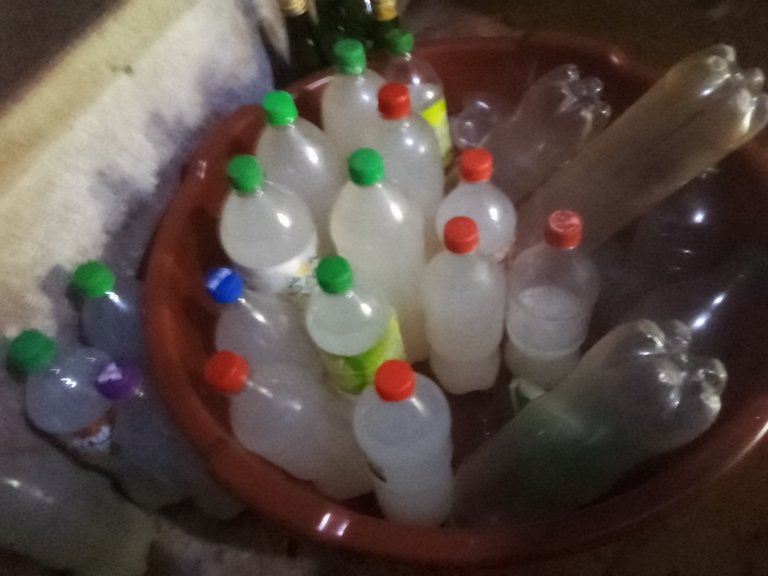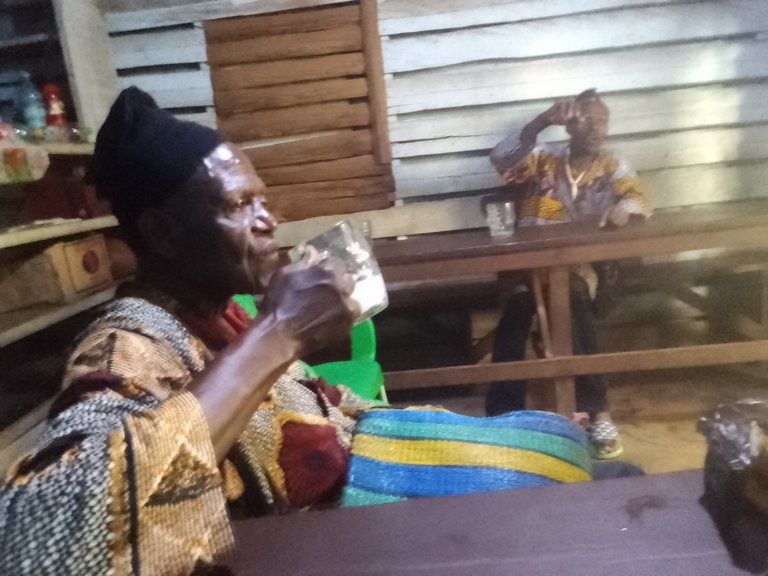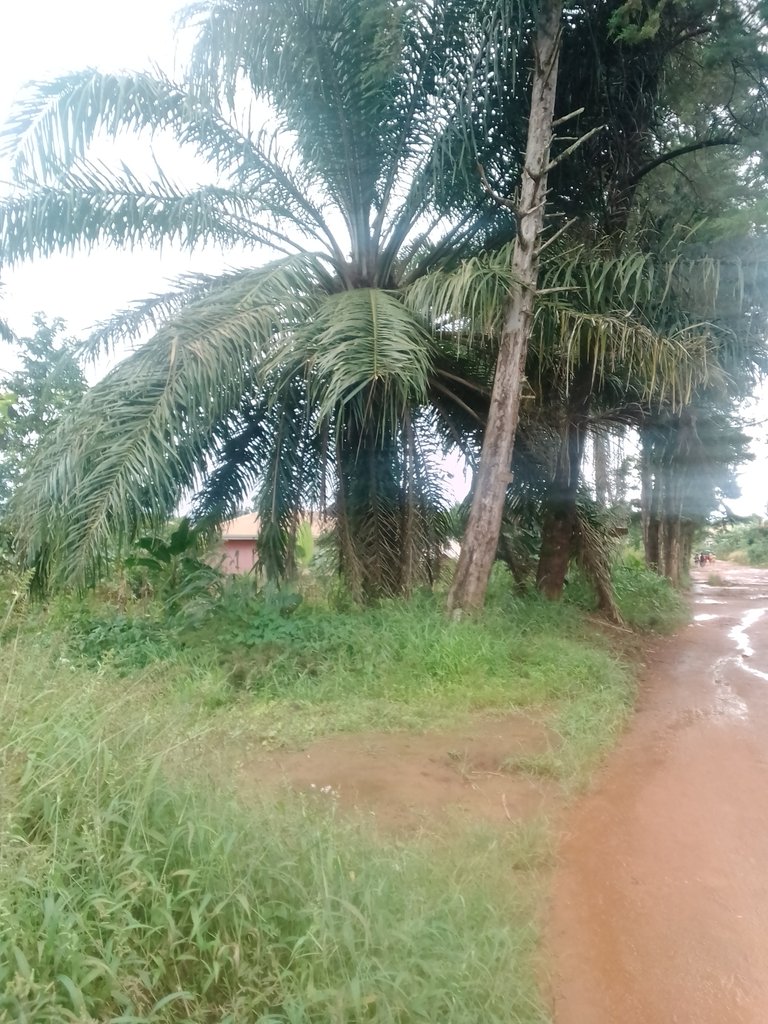Palm wine consumption and Other uses of Palm wine, the case study of Cameroon.

I am Mnkong Emmanuel Saah, in Bamenda Cameroon, Africa. And I wish to share with my friends of this Community space; the impacts of the local natural liquor known as palm wine in Africa and other parts of the world.
By way of definition, palm wine is an achololic beverage created from the sap of various species of palm trees such as " Raphia palm, date palms, and coconut palms .' It is known by various appellations, as mantango, Mbuh, tumbu liquor, white stuff, in Cameroon.
In Nigeria, it is known as emi or oguro among the Yorubas of the south west; ukot mmong among the Anang people of the south-south Akwa Ibom state, mmanya among the Igbo, and gya in Hausa dialect. Palm wine contains a high amount of sugar, and can range in alcohol content from 0.05% to 15%. When it is freshly tapped, palm wine is non-alcoholic and gives off a sweet smell and taste. Palm wine tapping is a profession on its towns and villages. Palm wine is also found in many parts of Asia, the Caribbean and South America.

In Cameroon, palm wine is not just a beverage but a symbol of cultural heritage. It is consumed during festivals and traditional ceremonies. It promotes unity and togetherness among the people. And most tradipractionals and locals used it in traditional medicine, like in my hometown Oku, it is also used in symbolizing purity and utilized in rites to communicate with ancestors and gods. Several local herbs are also soaked with palm wine and taken in prescribed dosage.
It is also served at weddings, birth celebrations and funerals wakes. As a token of respect to deceased ancestors, many drinking sessions include a small amount of Palm wine.
CASE OF BAMENDA:

Using the case study of Bamenda township, Bamenda palm wine drinking joints, people like to periodically congregate in various sites to socialize and indulge in politicking discourse while drinking. In Bamenda, palm wine drinking joints can be compared to European coffee shops and salons which are areas people gather and discuss matters concerning them. Palm wine joints are informal public spaces that emerge to respond to urbanization and cosmopolitanism, and stand out as one of the distinctive place for socialization These spots are accessible to people of all classes and served as centres for drinking traditional liquor, gathering, and spreading news. In Mankon Bamenda where I live, it is common to find an influx of people streaming into palm wine drinking joints to drink palm wine, commonly known as "Mbuh." This liquor is comparatively cheaper when compared to beer and other beverages. A liter of "Mbuh" cost 300frs and can be taken by two or more people compared to a bottle of beer that costs between 800 to 1000frs and taken by One person. A big cup of "Mbuh" costs 150frs making it easy and affordable for an average earned denizens. And it's always fun to find youths and elders socializing over this palm wine. During these gatherings youths learn wisdom from the elders who freely share and interrelate with each other. Sharing is quite common even with those who can't afford a sip in a hot afternoon heat, they are able to, through such social gathering.
But as the denizens drink this palm wine, caution should be taken not consume it in excess, because fermented palm wine contains a high amount of alcohol and can be intoxicating. So it can be bad for one's health when taken in excess because we also know that drinking alcohol in excess destroys important organs in the body so does palm wine.
However, Palm wine contains antioxidants such as phenolic compounds. They help protect the body against oxidation stress and reduce the risk of chronic diseases and cancer. In general, wine and some other types of alcohol are considered to help decrease the likelihood of people getting heart disease. In some cases breast feeding mothers whose breasts do not produce milk at child birth, are adviced to drink fresh palm wine to stimulate the flow of the breast milk. ( And this practically do work ).

Palm wine production by small holders and individuals farmers may promote conservation as palm trees become a source of regular household income that may economically be worth more than the value of some cash crops, sold.
Congratulations @emmanuel237! You have completed the following achievement on the Hive blockchain And have been rewarded with New badge(s)
Your next target is to reach 500 upvotes.
You can view your badges on your board and compare yourself to others in the Ranking
If you no longer want to receive notifications, reply to this comment with the word
STOPCheck out our last posts:
I love freshly processed sweet palm wine.
Nice one dear
Use Ecency every day to boost your growth on the platform!
Sending you Ecency points